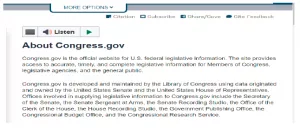
Dear Editor,
Has Congress issued report cards on the job performance of its members? With the November 5th election approaching that type of information could be helpful. The incumbent congressional delegate, Uifaatali Amata Radewagen, has served the people of American Samoa for 10 years in Congress, and maintains a strong reputation amongst those who voted for her in the past.
However, there’s a large percentage of the people who want change in American Samoa. While most of that desire for change is focused on the gubernatorial election, many are also considering the candidates who are challenging the incumbent in Congress; namely, Luisa Kuaea, Meleagi Chapman, and Rosie Lancaster. Many have asked what they would do differently compared to the incumbent? What more could they do for American Samoa?
To fully appreciate responses to these types of questions, it’s important for the people to have a clear understanding of the incumbent’s job performance in Congress. While Congress has not created report cards per se, the Library of Congress has created www.congress.gov, which provides objective data on the legislative activities of all 535 members of Congress. Anyone can go to congress.gov and see for themselves what their senator or representative has actually done, or not done, for their state or territory.

To help the voters of American Samoa access this public information, we conducted several searches on congress.gov, and collected as much data as possible concerning the congressional representatives from American Samoa and the other US territories. We then organized all of that data in an easy to read table so that American Samoa’s voters could see their current representative’s work over the past 10 years in comparison to the work of her peers from the other US territories. Given their similar circumstances, e.g. limited voting power in Congress etc., this data comparison could provide voters with a better understanding of their representative’s job performance.

If voters want to look at productivity, they could begin with a search on congress.gov for “Any Action,” meaning any legislative action, including Bills, Amendments, Resolutions, etc. that was sponsored by their representative. Interestingly, the data from the Library of Congress shows that American Samoa’s current representative has been the least active of all the representatives from the US territories.
According to data from Congress, American Samoa’s current representative has sponsored a total of 36 legislative actions, including 33 bills and 3 amendments. By comparison, the representatives from the Northern Mariana Islands (CNMI) and Guam have each sponsored more than 2X the legislative actions of American Samoa’s representative over the same time period. The representative from the Virgin Islands – more than 3X, and the representatives from Puerto Rico – more than 4X that of American Samoa’s representative.

It should be noted that of the 33 bills sponsored by American Samoa’s representative, 3
have successfully become laws, namely:
- H.R.2617, which reduced the federal minimum wage for American Samoa (2015-2016).
- H.R.6452, which ensured American Samoa’s inclusion in the Pacific Fisheries Act (2015-2016).
- H.R.1362, which renamed the VA Outpatient Clinic in Tafuna after the former congressman Faleomavaega Eni Hunkin (2017-2018).
Additionally, two amendments by American Samoa’s representative have become law,
namely:
- House Amendment 21 to H.R.840, which declared that the child care benefit for military veterans is only available when they are traveling to or attending a VA
appointment (2019-2020). - House Amendment 210 to H.R.2157, which increased the dollar amount of nutritional assistance for American Samoa from $5,000,000 to $18,000,000 (2019-2020).
That is the sum total of all the legislative actions sponsored by American Samoa’s current representative according to data from Congress.
Seeing the incumbent’s five accomplishments summarized this way may look and feel different from the information in news articles over the past 10 years and newsletters from the congresswoman’s office. They have publicized the incumbent’s involvement on various committees, emphasized the benefits of her seniority in Congress, and called attention to her welcoming millions and millions of dollars to American Samoa.
While those reports are informative, the Library of Congress provides objective and concise data for the people to be able to see and confirm a representative’s legislative actions and accomplishments.
Using congress.gov, the hard working people of American Samoa can see that one of the first bills their current representative sponsored in Congress actually reduced the federal minimum wage for the territory.
Additionally, American Samoa’s military veterans can see that their representative in Congress has sponsored only one legislative action for veterans that became law.
Perhaps the biggest eye opener for American Samoans is seeing that only one increase in federal funding to the territory was attributed to their current representative.
Those are the facts according to the Library of Congress. In fact, congress.gov published the following statement regarding the information it provides to the public:

“Congress.gov is the official website for US federal legislative information. The site provides access to accurate, timely, and complete legislative information for Members of Congress… Congress.gov is developed and maintained by the Library of Congress using data originated and owned by the US Senate and US House of Representatives.”
Does this information from Congress change one’s perspective regarding American Samoa’s representation in Congress? Perhaps voters may be wondering, what about all the other work that the incumbent has reported on over the past 10 years she has been serving in Congress?

Well, if voters search on congress.gov for any legislative action that American Samoa’s representative has cosponsored, voters will see 803 legislative actions; meaning, there were 803 bills, amendments, resolutions, etc. that were sponsored by other representatives in Congress, which American Samoa’s representative added her name to as a cosponsor. Of those 803 legislative actions, 56 successfully became law.
If voters review those search results, they will see a number of bills for military veterans, federal funding, etc. However, it should be understood that those legislative actions were all sponsored by other representatives in Congress. In other words, many of the benefits that have come to American Samoa over the past 10 years resulted from the legislative actions sponsored by other representatives in Congress.

Now, if voters look at these two tables from congress.gov, they will see data of the incumbent’s sponsored legislation on the left, and data of her cosponsored legislation on the right. During the 114th Congress, i.e. the incumbent’s first term (2015-2016), she is recorded to have sponsored 11 legislative actions. However, by the 118th Congress (2023-2024), the incumbent is recorded to have sponsored only 4 legislative actions. That is a 64% drop in legislative activity over her career. When compared to the data in the table on the right, voters can see that the incumbent has utilized her time in Congress primarily to cosponsor the work of other representatives in Congress.
If voters want to take a deeper dive into their representative’s advocacy work, Congress records the number of times that a representative gives remarks in Congress for the people. The opportunity and ability to speak in Congress are crucial elements in a representative’s advocacy for his/her people. The data shows that American Samoa’s congresswoman has given a total of 79 remarks during her 10 years in Congress. When compared to the advocacy work of representatives from the other US territories, American Samoa’s representative has given the fewest number of remarks in Congress.

Now, when it comes to a territory’s representation in Congress, many point to the value of seniority. As years of service increase, the quantity and quality of one’s connections in Congress also increase. Consequently, senior representatives are often viewed as more effective at gaining support for legislative actions that benefit their state or territory. One way to gauge the effectiveness of a representative’s seniority is to look at the number of representatives he/she can persuade to become cosponsors on his/her bills.
Interestingly, data from congress.gov shows that of all the US territories, American Samoa’s congresswoman has the fewest number of cosponsors on her bills. In fact, the most cosponsors on any one of her bills is five. By comparison, Guam received 112 cosponsors on one of its bills. US Virgin Islands, 119 cosponsors on one of its bills. Puerto Rico, 181 cosponsors on one of its bills. CNMI, 287 cosponsors on one of its bills. In summary, less than 1% of the representatives in Congress have chosen to cosponsor the legislative actions of American Samoa’s current representative.

If voters look at the data side by side, the picture becomes clearer in terms of legislative activity, advocacy, and the effectiveness of a representative’s seniority in Congress. The data from Congress shows that the job performance of American Samoa’s current representative is quantifiably less than the job performance of all other representatives from the US territories.

This information has been compiled from the Library of Congress and shared with the people of American Samoa in the spirit of transparency to enable voters to make an
informed decision on November 5th regarding their future representation in Congress.
When people ask the candidates running for Congress what they would do differently in comparison to the incumbent, it’s important for the people to have objective data to make a fair comparison.
When people ask what more could the candidates running for Congress do for American Samoa, it’s important for the people to understand what actually has been done by the incumbent.
For anyone who wishes to verify whether the data presented is accurate, please go to www.congress.gov and conduct your own searches of the legislative work performed by American Samoa’s current representative in Congress.
Seeing that data in comparison to the data of her peers can help voters develop a clearer understanding of the representation that American Samoa has received in Congress over the past 10 years. With this “timely, accurate, and complete legislative information” from the Library of Congress, voters can make a more informed decision as to whether they should reelect the incumbent or elect a new candidate.
All of the data referenced herein was taken from www.congress.gov on October 1, 2024 using the search criteria in the links below. Searches using these links today will show the most up to date data.
● https://www.congress.gov/member/aumua-amata-radewagen/R000600
● https://www.congress.gov/member/james-moylan/M001219
● https://www.congress.gov/member/michael-san-nicolas/S001204
● https://www.congress.gov/member/madeleine-bordallo/B001245?q=%7B%22congress%22%3A%5B%22113%22%2C%22114%22%2C%22115%22%5D%7D
● https://www.congress.gov/member/gregorio-sablan/S001177?q=%7B%22congress%22%3A%5B%22114%22%2C%22115%22%2C%22116%22%2C%22117%22%2C%22118%22%5D%7D
● https://www.congress.gov/member/stacey-plaskett/P000610
● https://www.congress.gov/member/jenniffer-gonzalez-colon/G000582
● congress.gov/member/pedro-pierluisi/P000596q=%7B”congress”%3A”114″%2C”sponsorship”%3A”cosponsored”%7D
Signed
Ken Kuaea




